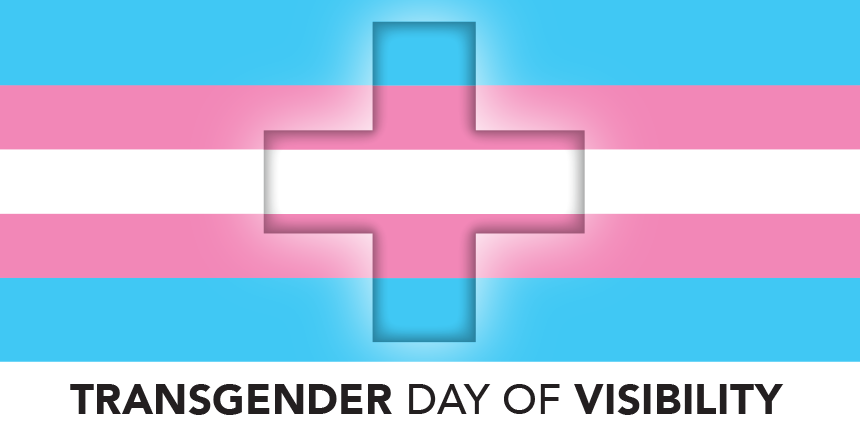News Releases
Celebrating Transgender Day of Visibility: Southcoast Health provides welcoming environment for transgender patients

A healthcare setting can be an uncomfortable place for transgender patients who fear facing painful judgment and even rejection when they need care the most.
To better serve patients and meet them where they wish to be met, Southcoast Health is dedicated to providing a welcoming, safe environment where all patients can get the high-quality care they need and deserve.
“Southcoast is working to make transgender patients feel welcomed, recognized, understood, and supported,” says Dr. Caroline Plamondon, one of Southcoast’s plastic surgeons who serves LGBTQIA+ patients.
“It is very important for trans patients to receive care with respect and understanding,” says Dr. Plamondon. “Pronouns and names are important if you want patients to trust you.”
An active member of the World Professional Association for Transgender Health (WPATH), she performs gender-affirming facial feminizing surgery and top surgery for trans feminine and trans masculine patients.
“At a time when some states are passing laws that make trans care illegal, we want to ensure the transgender population in southeastern Massachusetts and Rhode Island can rely on Southcoast Health for most of their care,” adds Dr. Plamondon, who sees transgender patients every week.
Southcoast’s work to embrace trans patients in a thoughtful, helpful manner starts with knowledge and understanding. A Sexual Orientation and Gender Identification questionnaire is being implemented systemwide through Epic, Southcoast’s electronic health record system. It enables patient records to include information such as preferred name and pronouns, gender assigned at birth, gender identity, and sexual orientation. Patients are not required to answer any of these questions, but are welcome to if they are willing to share that information with their care team. In addition, patients can now navigate to their MyChart account, fill out the questionnaire, add their preferred name and gender identity and avoid having those conversations at the reception desk.
Dr. Stephen Finney, a Southcoast primary care physician who also cares for LBGTQIA+ patients, said he recently filled out the questionnaire himself. He said it made him feel more confident in the care he receives because as a gay man he is at higher risk for certain diseases.
“It’s important for providers to ask these questions so they can provide the right screenings and a comfortable environment,” Dr. Finney says.
It’s important to know a trans patient’s assigned gender at birth, gender identity, and steps they’ve taken to transition. This information helps physicians ensure they are providing proper care. A person who identifies as one gender, for instance, may still have the organs of the gender assigned at birth that require specific care.
“This really enables the provider to offer the best care possible. Identifying the patient as who they really are is the most effective way to treat the whole person,” Dr. Finney says.
“Speaking from personal experiences as someone who grew up in a small Louisiana town, it’s not always not accepted to be LGBTQIA+,” he says. “I want to treat more of these patients and be a role model for them.” Dr. Finney also provides medically necessary hormone replacement therapy that patients need for their transition.
Southcoast Health’s Diversity, Equity & Inclusion Council has been leading the way to ensure health equity for transgender patients among others. The interest has helped launch the More Pride Southcoast Employee Resource Group the Southcoast Health LGBTQIA+ Patient Family Advisory Council and other groups.
The LGBTQIA+ Welcoming & Knowledgeable project worked closely with organization partners to guide the electronic medical record system improvements and the establishment of comprehensive LGBTQIA+ cultural awareness training.
For more information visit, Diversity, Equity & Inclusion at Southcoast Health | Southcoast Health.
